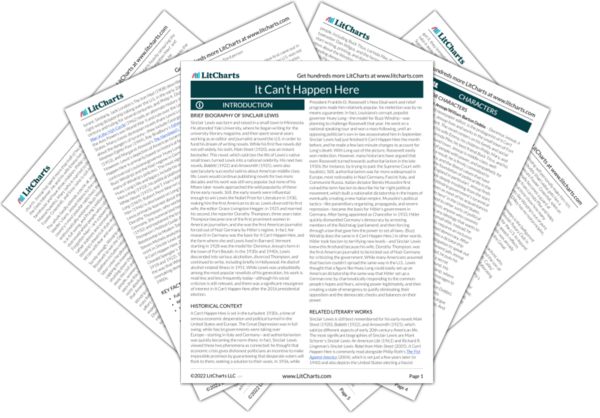Jessup’s freedom finally runs out. It’s significant that he gets arrested on the Fourth of July: this represents how Windrip has turned core American values on their head, all while claiming to keep them alive. For instance, Windrip’s Minute Men parade is supposed to represent freedom and independence, even though the Minute Men are really a force of repression and terror. Unlike in a democracy, where suspects are presumed innocent and supposed to be treated humanely, in Windrip’s U.S., Jessup is presumed guilty, and the Minute Men make a point of treating him as cruelly as possible when they arrest him.
